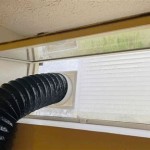Why Does My Basement Smell Like Sewage?
If you notice a sewage smell in your basement, it's important to find the source and address it promptly. Sewage odors can be unpleasant and may indicate underlying problems with your plumbing or drainage system. Here are some common causes of sewage smells in the basement:
1. Dry P-Trap
A P-trap is a U-shaped section of pipe beneath sinks, toilets, and other plumbing fixtures. It holds a small amount of water, which creates a water seal that prevents sewer gases from escaping into the home. If the P-trap dries out, due to lack of use or evaporation, it can allow sewer gases to enter the basement.
2. Clogged Drain Lines
Clogged drain lines can cause sewage odors in the basement if they prevent wastewater from draining properly. Clogs can occur due to hair, soap scum, grease, or other debris accumulating in the pipes. As the clog worsens, it can lead to sewage backups and unpleasant odors.
3. Damaged Sewer Line
A damaged sewer line can allow sewage to leak into the basement, causing a strong odor. Sewer lines can be damaged by tree roots, shifting soil, or improper installation. A damaged sewer line is a serious problem that requires professional repair.
4. Cracked or Leaking Toilet Wax Ring
The toilet wax ring seals the connection between the toilet base and the drain flange on the floor. If the wax ring becomes cracked or damaged, it can allow sewer gases to seep into the basement. Replacing the wax ring is a relatively simple repair.
5. Venting Issues
Plumbing systems rely on vents to allow sewer gases to escape safely. If the vents are blocked or damaged, sewer gases can accumulate in the basement, leading to odors. Vent pipes may become blocked by debris, birds' nests, or snow and ice.
6. Sump Pump Issues
Sump pumps are designed to remove water from the basement. If the sump pump fails or becomes clogged, it can lead to sewage backups and odors in the basement. Regular maintenance and testing of the sump pump are essential to prevent problems.
7. Radon Gas
Radon is a radioactive gas that can accumulate in basements. While radon is not typically associated with sewage odors, it can have a musty or metallic smell. Radon gas can be harmful to health, so it's important to test for it and take appropriate mitigation measures if necessary.
Addressing Sewage Smell in the Basement
If you notice a sewage smell in your basement, it's important to identify and address the underlying cause. Start by checking for dry P-traps, clogged drain lines, or a damaged sewer line. If necessary, contact a plumber for professional assistance. Once the problem has been resolved, the sewage smell should dissipate.
To prevent sewage odors from recurring, it's important to practice good plumbing habits. Avoid pouring grease or other solids down drains, and regularly clean your P-traps and drains to prevent clogs. It's also a good idea to have your plumbing system inspected and serviced by a professional plumber on a regular basis to ensure that everything is functioning properly.

How To Eliminate Basement Odor And Sewer Smells Family Handyman

Why Is There A Sewer Smell In My Basement

Why Is There A Sewer Smell In My Basement Reddi Plumbing

Sewer Smells In My Home Fiskdale Sturbridge Ma

How To Eliminate Basement Odor And Sewer Smells Family Handyman
I Have A Faint Sewer Smell In My Basement Utility Room M Having Plumber Come To Look At Ejector Tomorrow Is It Alright For Family Sleep The House

Smells Like Sewage Here S Why Simpson Plumbing Llc
Why Does My House Smell Like Sewer At Night Quora

How To Get Rid Of Basement Odor And Why It Smells In The First Place

How To Get Rid Of Sewer Smell From Your Basement Mt Drains
Related Posts







